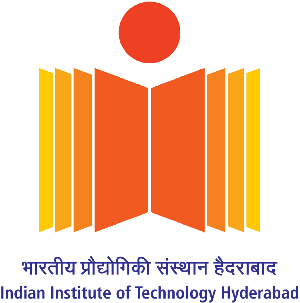Master of Technology in Communications, Signal Processing and Learning
MTech Course Structure
Please refer to the MTech Curriculum page for the course structure of the 2-year and 3-year MTech programmes.
Fees and Stipend
- Fee Details will be updated in July 2024.
- 2-year MTech (TA) students receive stipend from the Ministry of Education
- 3-year MTech students are supported by projects carried out by faculty members
Stipend:
MTech admissions
- 2-year MTech: Online application, typically open during mid-March to mid-April.
- 3-year MTech
- August admissions: online application typically open during mid-March to mid-April
- January admissions: online application typically open during November
Admission Process
- Admission to the MoE sponsored MTech (TA) programme for candidates with a GATE score is via COAP.
- All other admissions will involve a written test and/or interview
Written Test and Interview
The admission process consists of the following stages.
The written test and interview are typically conducted on the same day in offline mode
in IIT Hyderabad campus —
the test in the morning session (about 90 minutes) and the interview of the shortlisted
candidates (about 20 minutes) in the afternoon session. However, depending on logistical
constraints, this may extend to the next day. Details regarding this will be intimated
to candidates selected for the written test.

The written test and the interview are designed to examine the mathematical and logical reasoning of the candidates. We are looking for students who are willing to learn and improvise. In particular, we are not interested in rote formula-based approaches for solving problems. The candidates are expected to have a clear understanding of the fundamentals. The focus of the written test is on
- Linear algebra
- Probability theory & random variables
- Mathematical aptitude
- Their respective areas of interest
- Basics of communications and/or signal processing
- Programming aptitude
| Linear Algebra |
|---|
| Vector spaces, linear independence, basis, dimension |
| Inner product and norm |
| Matrix algebra, rank, eigenvectors, determinant |
| Solving systems of linear equations |
| Special matrices (diagonal, triangular, orthogonal, symmetric etc.) |
| Probability Theory & Random Variables |
|---|
| Probability density and distributions |
| Combinatorial probability |
| Binomial, exponential, normal, Poisson, exponential random variables |
| Jointly distributed random variables |
| Mean, variance, mode etc. |
| Independence, Conditional probability, Bayes theorem |
References
We recommend the following textbooks to prepare for linear algebra and probability theory & random variables.
- Boyd, Stephen, and Lieven Vandenberghe, "Introduction to applied linear algebra: vectors, matrices, and least squares", Cambridge University Press.
- David Lay, “Linear Algebra and its Applications”, Pearson.
- Gilbert Strang, “Linear Algebra and its Applications”, Cengage.
- Erwin Kreyszig, “Advanced Engineering Mathematics”, John Wiley & Sons.
- Bertsekas, Dimitri, and John N. Tsitsiklis, "Introduction to probability", Vol. 1. Athena Scientific.
- Athanasios Papoulis and S. Unnikrishna Pillai, “Probability, Random Variables and Stochastic Processes”, McGraw Hill.
- Sheldon Ross, “A First Course in Probability”, Pearson.
MTech 3 Year RA Placements
| Academic Year | Avg CTC (in Lakh INR) | Min CTC(in Lakh INR) | Max CTC(in Lakh INR) |
|---|---|---|---|
| 2019-20 | 35.33 | 22.5 | 52.45 |
| 2020-21 | 22.5 | 22.5 | 22.5 |
| 2021-22 | 22.59 | 11.5 | 40.24 |
List of recruiters:
Bharti Airtel, Yokogawa, TCS, Samsung Semiconductor, Qualcomm, Philips, Mediatek, Rakuten, Steradian Semiconductors
Self-Sponsored MTech Placements
| Academic Year | Avg CTC (in Lakh INR) | Min CTC(in Lakh INR) | Max CTC(in Lakh INR) |
|---|---|---|---|
| 2021-22 | 24.74 | 11.71 | 40.24 |
List of recruiters:
Accenture S&C, Qualcomm, Mathworks, Mediatek, Rakuten, BEL
click here for more information